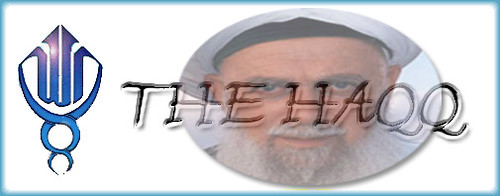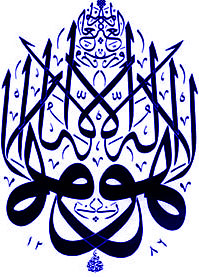Abu Bakr al-Siddiq
 Abu Bakr al-Siddiq,
Abu Bakr al-Siddiq, Prophet Mohammad’s (PBUH) exclusive
companion and greatest supporter.
Bismillahir'Rahmanir'Rahim
He was the first man who believed in Prophet Mohammad(PBUH) and the first one who did
so unhesitatingly, also he is the first of the ten who were promised Paradise, and first of the Prophet’s Community to enter Paradise.
Alone among the Prophet Mohammad's Companions, Abu Bakr led the Community in prayer in the lifetime of the Prophet. The latter used to call him "The Most Truthful" (al-Siddîq) and "Allah’s Freedman from the Fire" (`Atîq Allâh min al-nâr). When the Koraysh tribe confronted the Prophet(PBUH)after the Night Journey, they turned to Abu Bakr and said: "Do you believe what he said, that he went last night to the Hallowed House and came back before morning?" He replied: "If he said it, then I believe him, yes, and I do believe him regarding what is farther than that. I believe the news of heaven he brings, whether in the space of a morning or in that of an evening journey." And that was the reason Abu Bakr was named al-Siddîq: the Very Truthful, the One Who Never Lies.
`Umar Ibn Al Khattab, another one of Prophet Mohammad's companions, said: "Abu Bakr’s faith outweighs the faith of the entire Umma (The Muslim Nation)." This is confirmed by the following Hadith:
The Prophet asked:"Did any of you see anything in his dream?" A man said to the Prophet (PBUH): "O Messenger of Allah, I saw in my dream as if a balance came down from the heaven in which you were weighed against Abu Bakr and outweighed him, then Abu Bakr was weighed against `Umar and outweighed him, then `Umar was weighed against `Uthman and outweighed him, then the balance was raised up." This displeased the Prophet(PBUH) who said: "Successorship of prophethood! Then Allah shall give kingship to whomever He will."
`Umar also said: "The best of this Community after its Prophet is Abu Bakr." `Ali named him and `Umar, the two Sheikhs of Islam of the Community and said: "The best of this Community after its Prophet(PBUH) are Abu Bakr and `Umar," "The most courageous of people is Abu Bakr," and "The greatest in reward among people for the volumes of the Qur’an is Abu Bakr, for he was the first of those who gathered the Qur’an between two covers." He was also the first to name it Mus'haf.
The Prophet confirmed his high rank in many of his sayings, among them when he (PBUH) said:
"Allah gave one of His servants a choice between this world and what He has with Him, and that servant chose what Allah has with Him." Abu Bakr wept profusely and we wondered why he wept, since the Prophet had told of a servant that was given a choice. The Prophet himself was that servant, as Abu Bakr later told us. The Prophet continued: "Among those most dedicated to me in his companionship and property is Abu Bakr. If I were to take an intimate friend other than my Lord, I would take Abu Bakr. But what binds us is the brotherhood of Islam and its love. Let no door [of the Prophet’s mosque] remain open except Abu Bakr’s.
"Allah praised Abu Bakr above the rest of the Prophet's companions by saying: "Those who spent and fought before the victory are not upon a level (with the rest of you)."
Read more!




